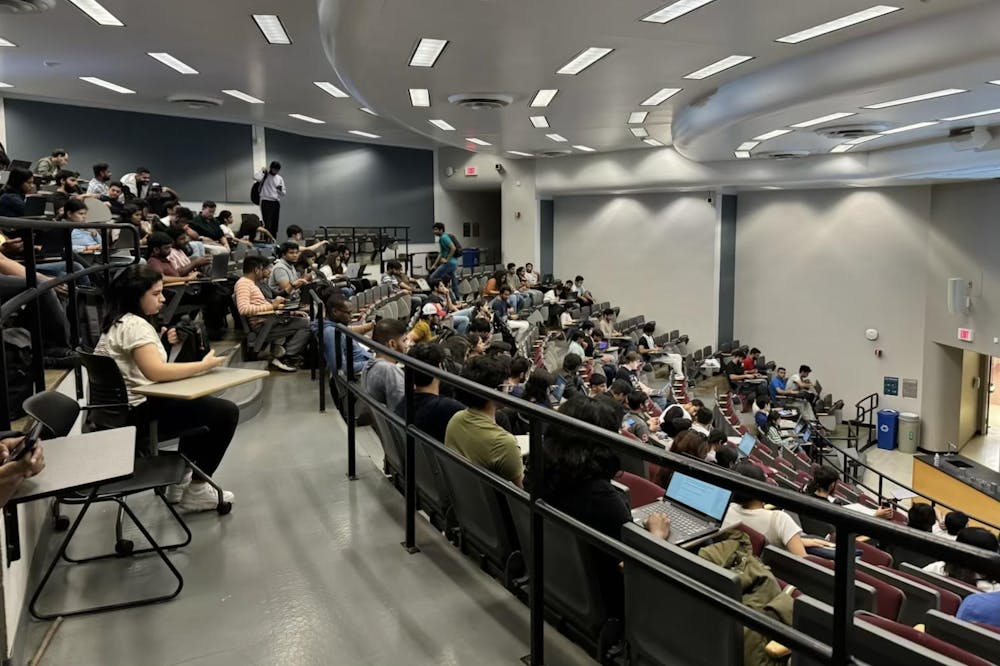Writer’s note: I took ECON-E 251, and now conduct CL sessions for ECON-B 251. All my opinions are based on the specific classes that I took and teach with those specific professors. Every professor has a different way of approaching a class. However, I feel the curriculum for ECON 251 is standardized with minimal changes among professors.
During a conversation on unemployment, my friend, an ECON 251 top-performer, argued raising the minimum wage increases unemployment. Citing the standard supply-and-demand model taught in introductory economics, he reasoned setting a minimum wage above the market equilibrium would create a labor surplus, where quantity supplied (labor) exceeds quantity demanded (jobs).
He was in absolute disbelief when I introduced him to the possibility of employment increasing with an increase in the minimum wage. He dismissed this idea by saying that such a thing would “never” happen. There were two main reasons for this: he believed we were talking about a perfectly competitive market (the most discussed in introductory economics), and second, he thought it was correct to extrapolate the ideas taught in introductory economics to make sense of the world around him.
A seminal 1994 paper in labor economics by Nobel Prize-winning economist David Card and economist Alan Krueger showed employment increased as the minimum wage increased. This mainly happened because of the nature of the market they were examining (the idea of monopsony power). However, this exception was completely unknown to my friend, because he was never taught about it in introductory economics.
This is my fundamental problem with ECON 251. As an undergraduate intern for this class who conducts collaborative learning sessions, I have come across a similar problem in my students to the one that I encountered with my friend.
The problem is a lack of diversity in ideas. Economics is a social science with diverse ideas. Fundamental models like demand and supply are subject to change and can be questioned, as the Card and Krueger study showed. So, would it be fair to teach a discipline as malleable and varied in its foundations as economics with the same level of precision and consensus as physics? My answer: NO!
The goal of introductory classes should be to introduce students to the many ideas and perspectives a discipline has to offer. ECON 251 introduces students to economic ideas but does not provide students with the knowledge of real-life examples that may threaten the validity of those ideas and does not offer potential alternative systems to the ones presented in ECON 251. Most of the ideas presented in this class tend to fit in with the neo-classical school of economics. Neo-classicalism in economics is an approach to economics that is based on three primary assumptions: people have rational preferences among outcomes; individuals maximize utility and firms maximize profits; people act independently on the basis of full and relevant information.
I do not see myself as an expert in economics to critique the merits of neo-classical economic theory and provide a scholarly analysis of that. I see myself as a student of neo-classical economics and expect my college introductory class to at least introduce me to ideas that may not be in favor of neo-classical economics. This absence of a holistic approach to introductory economics and a narrow focus on a mainstream understanding of economics leads to the formation of a very strong belief in this understanding.
The demand-supply model is mostly coherent with all the other models taught in ECON 251. This ability of introductory economics to make the complex jigsaw of the economic world just fall into place through these simple models leads to the formation of these very strong beliefs.
I understand the logistical difficulties that may arise with changing the curriculum to have a more holistic approach. There are almost 14 sections of ECON 251 being taught this semester with approximately 300 students in half of these sessions. It is one of the biggest classes at IU, and there are demands for the curriculum to be as objective and consistent as possible with industry standards across the country. However, I do not believe I am asking for a lot.
I just want ECON 251 to be updated with real-life research studies and examples introducing students to contrary perspectives. We must not forget students of ECON 251 will be future leaders in business, policy and industry. These students must be introduced to economics more holistically than what the standard curriculum now presents.
My other solution is to have a whole new class surveying different approaches to economics; a class exploring the Marxian, heterodox, Neo-Keynesian and feminist approaches to economics. These approaches provide valuable insights that do not take away from but instead complement the mainstream neo-classical models and only enhance our understanding of economics, forcing us to critically examine the theories taught.
I do not want my colleagues who are non-economics majors to have a narrow understanding of economics. I believe economics has a lot more to offer than the current curriculum of ECON 251. At the same time, I also believe a small change in that very curriculum or the option to opt for a class truly exploring the breath of economic ideas can go a long way in furthering the goal of a good liberal arts education — developing intellectual flexibility and breadth of mind.
Advait (he/they) is a sophomore studying economics and sociology.






